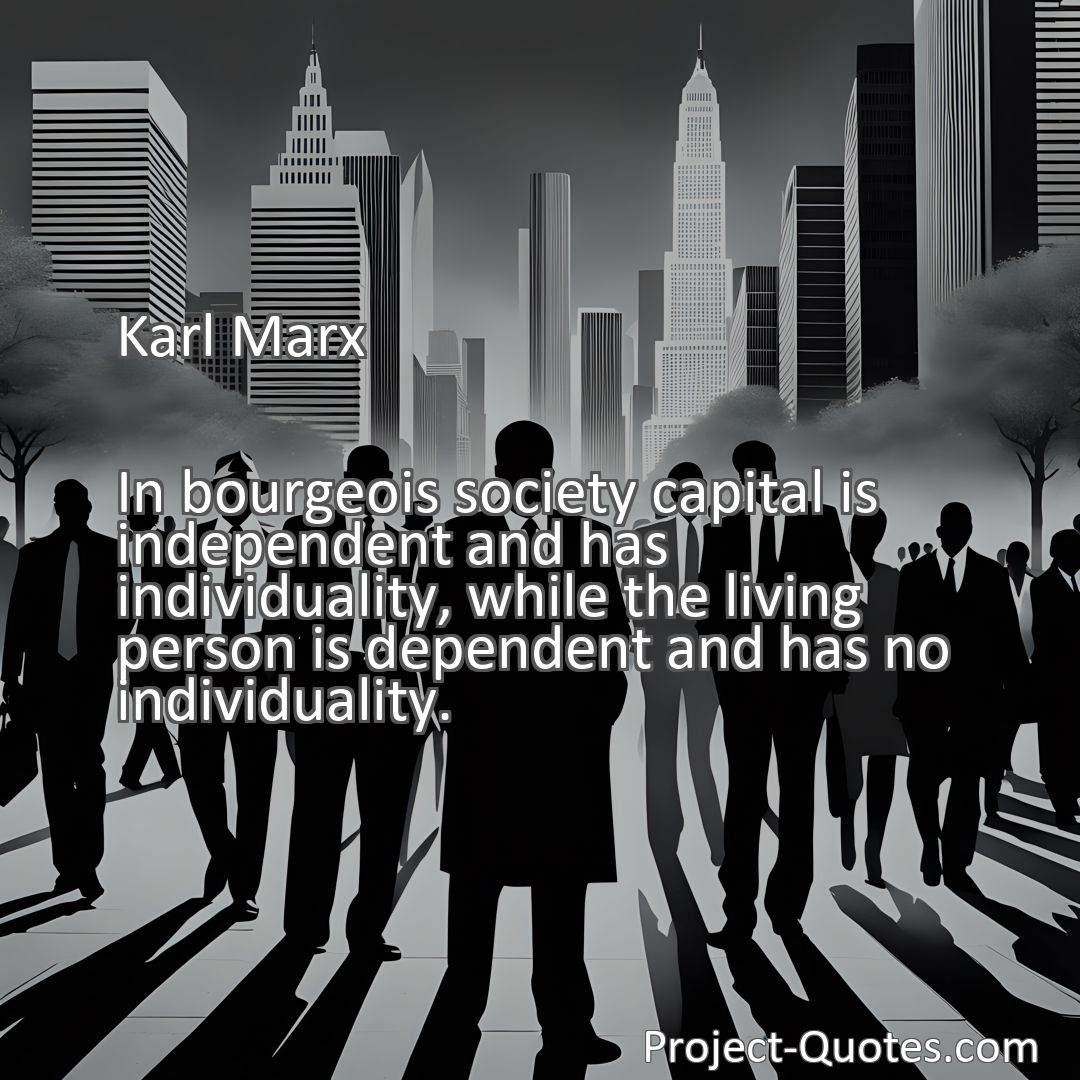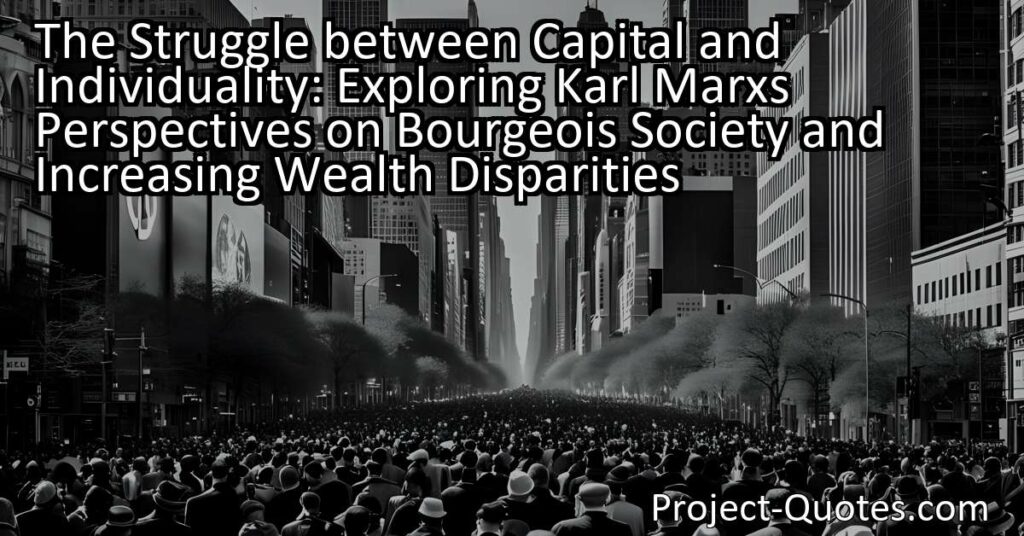In bourgeois society capital is independent and has individuality, while the living person is dependent and has no individuality.
Karl Marx
Karl Marx’s perspectives on bourgeois society reveal the struggle between capital and individuality, where capital gains independence and individuality while living individuals become dependent and lose their individuality. This imbalance leads to the dehumanizing nature of capitalism, perpetuating increasing wealth disparities and inequality. Marx argues that the proletariat must unite to challenge the dominance of the bourgeoisie and strive for a more equitable society where individuality is not reserved only for capital. Understanding Marx’s perspectives prompts meaningful conversations about socioeconomic systems and personal fulfillment in the modern world.
Table of Contents
- 1 In bourgeois society capital is independent and has individuality, while the living person is dependent and has no individuality.
- 2 Karl Marx
- 3 Meaning of Quote – In bourgeois society capital is independent and has individuality, while the living person is dependent and has no individuality.
- 4 Freely Shareable Quote Image
- 5 Related
Meaning of Quote – In bourgeois society capital is independent and has individuality, while the living person is dependent and has no individuality.
The Struggle between Capital and Individuality: Exploring Karl Marx’s Perspectives on Bourgeois Society
Introduction
In his renowned works, Karl Marx provides a critical analysis of bourgeois society and highlights the inherent conflict between capital and individuality. This essay will delve into Marx’s quote: “In bourgeois society capital is independent and has individuality, while the living person is dependent and has no individuality.”
Understanding Bourgeois Society
To comprehend Marx’s quote, we must first grasp the concept of bourgeois society. In simple terms, bourgeois society refers to a social class characterized by ownership and control over the means of production, such as capital, factories, and resources. Marx argues that this class dominates capitalist systems, resulting in a significant division between the bourgeoisie, who own the means of production, and the proletariat, who sell their labor.
Capital’s Independence and Individuality
According to Marx, in bourgeois society, capital takes on a life of its own, becoming independent and achieving individuality. Capitalism, as an economic system, revolves around the accumulation of capital, fostering its growth, and maximizing profits. In this pursuit, the bourgeoisie, as the owners of capital, amass power and influence. Their wealth becomes an entity that transcends the mere sum of its parts.
Living Person’s Dependence and Lack of Individuality
Conversely, Marx argues that living individuals in a bourgeois society become dependent on capital and forfeit their individuality in the process. The proletariat finds themselves reliant on the bourgeoisie for employment and basic necessities. Stripped of personal agency, the working class becomes mere cogs in the capitalist machine, often facing alienation from their labor and a lack of fulfillment.
The Dehumanizing Nature of Capitalism
Marx’s quote sheds light on the dehumanizing nature of capitalism within bourgeois society. While capital is granted individuality and independence, the living person is reduced to a mere tool in the pursuit of profit. Marx contends that capitalism alienates individuals from their labor and suppresses their creative potential, leading to a loss of personal identity.
The Struggle for Autonomy and Equality
Marx believes that the unequal distribution of individuality between capital and the living person fuels the struggle for autonomy and equality. He argues that the proletarians must organize and unite to challenge the dominance of the bourgeoisie. By demanding fair wages, suitable working conditions, and an equal voice in decision-making processes, the proletariat can begin to reclaim their individuality and challenge the notion that capital should overshadow humanity.
The Long-term Effects of Capital’s Individuality
Over time, capital’s individuality within bourgeois society perpetuates increasing wealth disparities and inequality. The accumulation of capital by the bourgeoisie allows them to maintain power, influence legislation, and shape societal structures to their advantage. The rich become richer, while the poor struggle to escape the cycle of poverty. Marx contends that this unequal distribution of individuality undermines the foundations of a just and equitable society.
Conclusion
Karl Marx’s quote provides a thought-provoking insight into the dynamics of bourgeois society. Through his analysis, he highlights the inherent imbalance between capital’s independence and the living person’s dependence. By shedding light on this conflict, Marx prompts us to question the dehumanizing aspects of capitalism and advocate for a more equitable society, where individuality is not a privilege reserved for capital alone. Understanding Marx’s perspectives allows us to engage in meaningful conversations regarding socioeconomic systems and the quest for personal fulfillment in the modern world.
I hope this quote inspired image brings you hope and peace. Share it with someone who needs it today!


